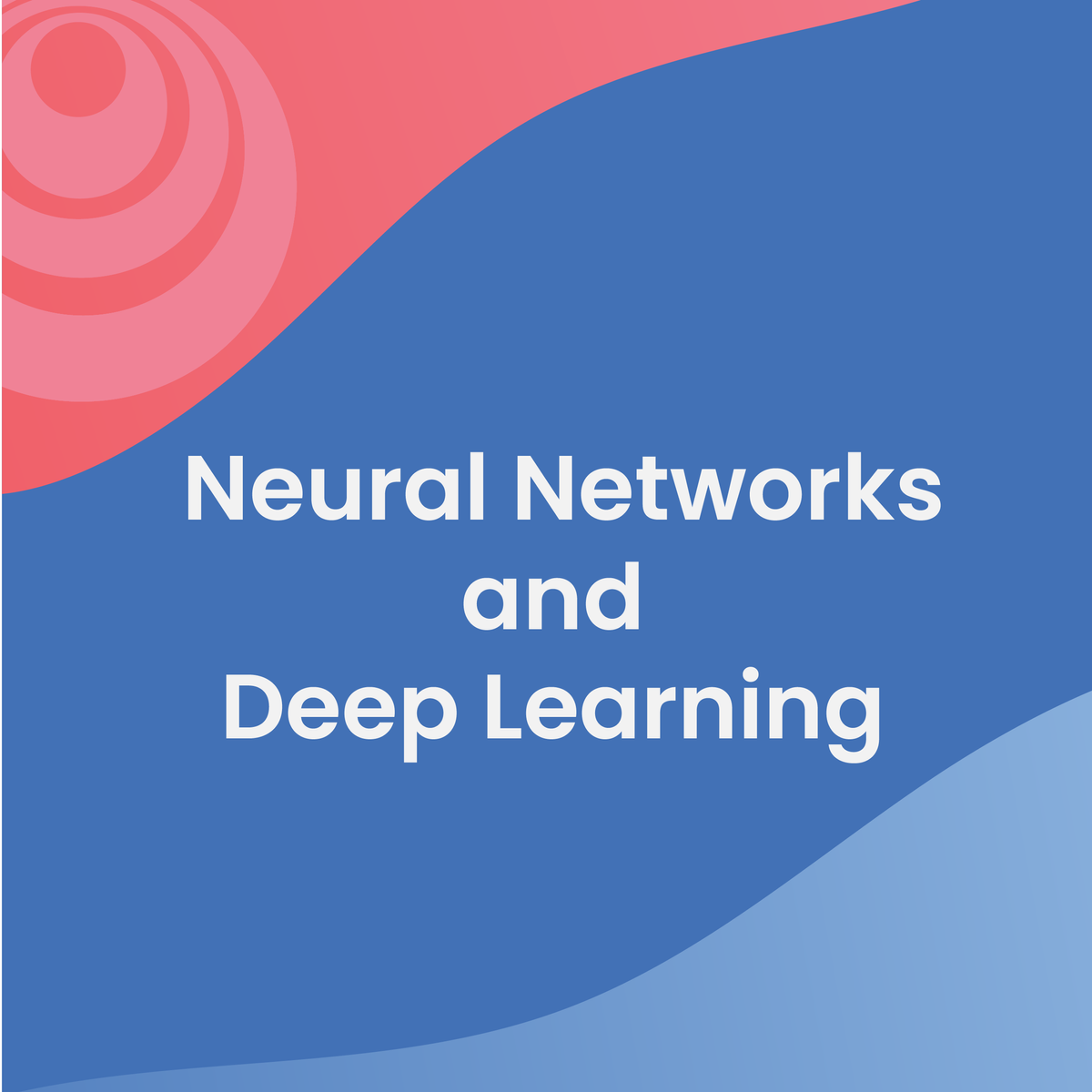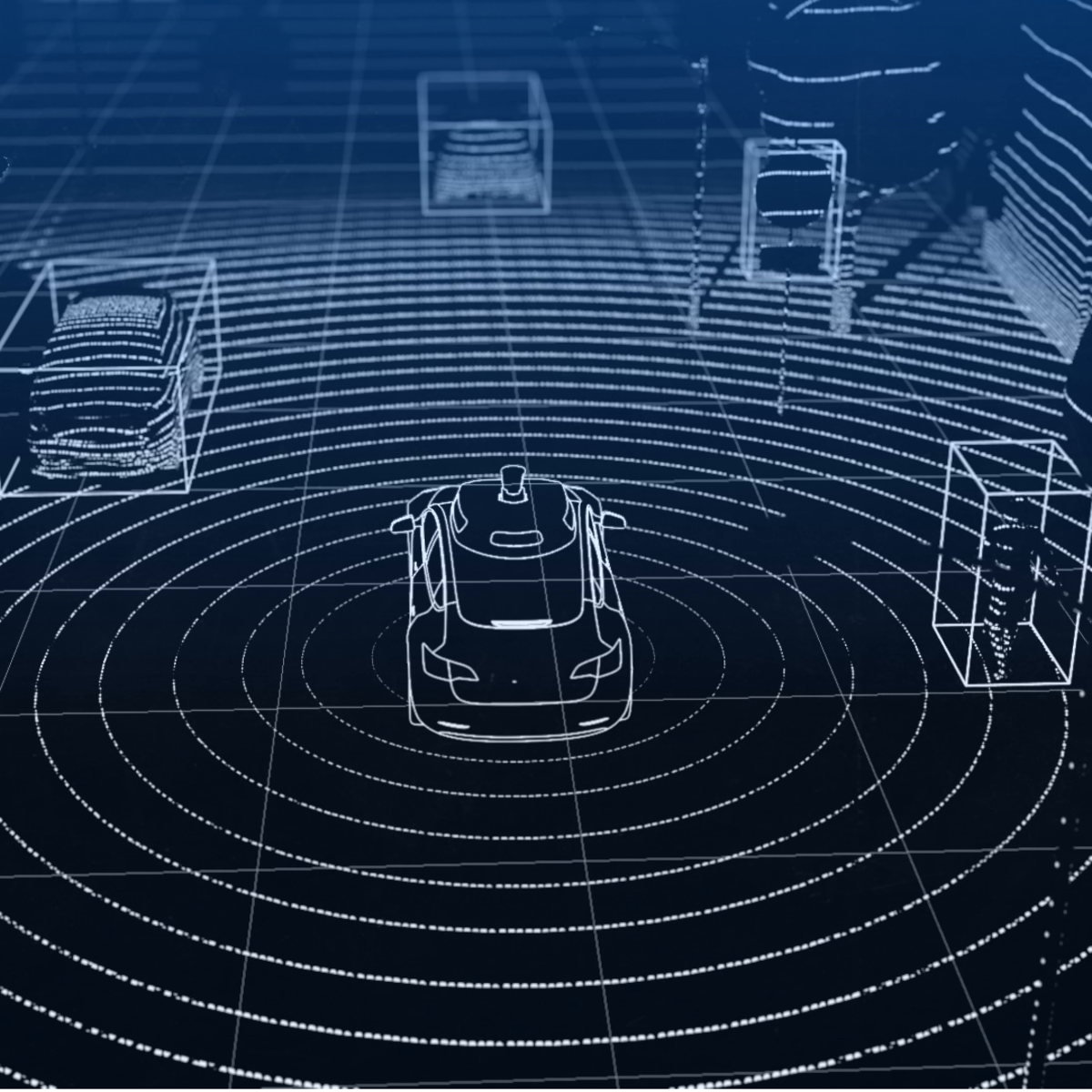Autonomous Vehicle Engineer
Navigating the Future: A Career as an Autonomous Vehicle Engineer
An Autonomous Vehicle Engineer is at the forefront of designing, developing, and testing the complex systems that allow vehicles to operate without human intervention. This multidisciplinary role involves a deep understanding of how to make vehicles perceive their environment, make critical driving decisions, and interact safely with other vehicles and infrastructure. It's a career that sits at the exciting intersection of cutting-edge software, sophisticated hardware, and the drive to redefine mobility.
Working in this field means contributing to technologies that have the potential to revolutionize transportation. Imagine a future with significantly fewer traffic accidents, reduced congestion on our roads, and enhanced mobility for individuals who are currently unable to drive. Autonomous Vehicle Engineers are actively building this future, tackling complex challenges in areas like artificial intelligence, sensor technology, and real-time system control. The work directly impacts the development of self-driving cars, trucks, and even public transit systems, making it a dynamic and impactful career choice.
Core Technical Skills for Autonomous Vehicle Engineers
To excel as an Autonomous Vehicle Engineer, a robust set of technical skills is essential. This field demands expertise across software development, hardware integration, and data analysis. Engineers in this domain are tasked with creating the "brains" and "senses" of self-driving vehicles, a challenge that requires both breadth and depth of knowledge.
The ability to work with complex algorithms, manage large datasets, and understand the intricacies of vehicle dynamics are all crucial aspects of the role. As the technology rapidly evolves, a commitment to continuous learning and staying updated with the latest advancements is also paramount for success.
Mastering Machine Learning and Deep Learning Frameworks
Machine learning (ML) and deep learning (DL) are fundamental to autonomous vehicle technology. These AI disciplines enable vehicles to learn from vast amounts of data, recognize patterns, and make intelligent decisions in real-time. Engineers often work with popular frameworks like TensorFlow and PyTorch to build and train the models that power perception, prediction, and planning systems in self-driving cars.
A strong grasp of neural networks, computer vision techniques, and data processing is vital. Engineers must be able to design, implement, and fine-tune complex models that can accurately interpret sensor data and predict the behavior of other road users. This involves not only coding proficiency but also a solid understanding of the mathematical principles underpinning these AI techniques.
For those looking to build a foundational understanding or deepen their existing knowledge in AI and its application in autonomous systems, several online courses can be highly beneficial. These courses often cover the core concepts of machine learning, deep learning, and how they are specifically applied to the challenges of autonomous navigation and decision-making.
Understanding the theoretical underpinnings and practical applications of these frameworks is key. Consider exploring texts that delve into the specifics of how AI is revolutionizing vehicle autonomy.
Expertise in Sensor Fusion: LiDAR, Radar, and Camera Systems
Autonomous vehicles rely on a suite of sensors – including LiDAR (Light Detection and Ranging), radar, and cameras – to perceive their surroundings. Sensor fusion is the critical process of combining data from these diverse sensors to create a comprehensive and accurate understanding of the environment. This allows the vehicle to detect objects, measure distances, and identify road features with greater reliability than any single sensor could achieve alone.
Engineers working on sensor fusion develop algorithms that can effectively integrate noisy and sometimes conflicting data streams. This requires a strong understanding of signal processing, statistical estimation (like Kalman filters), and the physical principles behind how each sensor operates. The goal is to build a robust perception system that can function reliably in a wide range of conditions, from bright sunlight to heavy rain or fog.
Online courses focusing on sensor technology and data fusion can provide valuable insights into these complex systems. They often cover the characteristics of different sensors and the techniques used to combine their outputs for improved perception.
Several books offer in-depth knowledge on sensor fusion techniques and their application in autonomous systems, providing a deeper dive into the theoretical and practical aspects.
Proficiency in Real-Time Operating Systems and Embedded Systems
The software in an autonomous vehicle must operate with extreme precision and reliability, often within strict time constraints. This is where Real-Time Operating Systems (RTOS) and embedded systems knowledge become crucial. Engineers in this specialization design and implement the software that runs on the vehicle's onboard computers, controlling everything from sensor data processing to actuating the brakes and steering.
A deep understanding of computer architecture, low-level programming (often in C/C++), and the principles of concurrent programming is essential. Engineers must ensure that critical tasks are completed within their deadlines, that the system is resilient to faults, and that resources like processing power and memory are managed efficiently. The complexity of these systems is immense; modern cars can have around 100 million lines of code, and autonomous vehicles are estimated to require up to 1 billion lines.
For those interested in the foundational software layers of autonomous systems, courses on operating systems and embedded systems programming are highly relevant. These can provide the necessary background to tackle the challenges of developing safety-critical, real-time software.
To further understand the intricacies of embedded systems, which form the backbone of autonomous vehicle control, certain texts offer comprehensive overviews.
Educational Pathways to Becoming an Autonomous Vehicle Engineer
Embarking on a career as an Autonomous Vehicle Engineer typically begins with a strong educational foundation in a relevant engineering or computer science discipline. The field is highly technical and demands a deep understanding of complex systems, making formal education a common prerequisite. Many engineers in this area hold advanced degrees, reflecting the research-intensive nature of autonomous technology development.
While a bachelor's degree is often the minimum entry point, continuous learning through specialized courses, certifications, and hands-on projects is vital for staying current in this rapidly evolving industry. Universities and online platforms offer a wealth of resources for aspiring engineers to gain the necessary knowledge and skills.
Relevant Degrees: Robotics, Computer Science, Electrical Engineering
A bachelor's degree in fields like Robotics, Computer Science, Electrical Engineering, or Mechanical Engineering provides a solid starting point. These programs typically cover fundamental concepts in mathematics, physics, programming, and systems design, all of which are applicable to autonomous vehicle development. Coursework often includes areas such as control systems, artificial intelligence, and software engineering.
For instance, a Computer Science curriculum might emphasize software development, algorithms, and machine learning, while Electrical Engineering programs often focus on sensor technology, embedded systems, and control theory. Robotics programs offer a multidisciplinary approach, integrating aspects of mechanical, electrical, and software engineering tailored to intelligent systems. Choosing a specialization within these degrees can help align your studies with specific areas of autonomous vehicle engineering, such as perception, planning, or controls.
Supplementing a traditional degree with online courses can provide specialized knowledge in emerging areas of autonomous vehicle technology. Platforms like OpenCourser offer a wide array of courses that can help bridge any gaps or provide deeper dives into specific topics relevant to the field.
The Role of PhD Research in Advancing Autonomous Systems
For those inclined towards research and development, pursuing a Ph.D. can open doors to more specialized and advanced roles in autonomous vehicle engineering. Doctoral research often focuses on pushing the boundaries of current technology, such as developing novel decision-making algorithms, improving the robustness of perception systems in challenging environments, or exploring new approaches to ensure the safety and reliability of autonomous systems.
Ph.D. programs allow for deep specialization in areas like advanced AI, machine learning for complex dynamic systems, formal verification of autonomous software, or human-robot interaction for autonomous vehicles. Graduates with doctoral degrees are often sought after for roles in research labs, advanced development teams within automotive companies, and faculty positions in academia, contributing to the long-term evolution of self-driving technology.
Specialized courses, often at the graduate level or through advanced online programs, can offer insights into the research frontiers of autonomous systems, including sophisticated decision-making processes.
Industry Certifications and Specialized Online Courses
Beyond formal degrees, industry-recognized certifications and specialized online courses can significantly enhance an aspiring Autonomous Vehicle Engineer's profile. Companies like NVIDIA and various anizations offer programs focused on self-driving car technologies, covering practical aspects of software development, sensor integration, and AI model deployment for autonomous systems. These certifications can demonstrate specific competencies and a commitment to staying current with industry tools and practices.
Online learning platforms are invaluable resources, providing access to a wide range of courses from introductory to advanced levels. Learners can find courses on specific programming languages like C++ and Python (essential in this field), Robot Operating System (ROS), computer vision libraries like OpenCV, and various machine learning techniques. Completing hands-on projects as part of these courses is particularly beneficial for building a practical skill set and a portfolio to showcase to potential employers.
OpenCourser is an excellent platform for discovering such courses, allowing individuals to search through thousands of options and find those that best fit their learning goals and career aspirations in autonomous vehicle engineering. The platform makes it easy to compare course content, instructor credentials, and learner reviews.
For a comprehensive understanding of the technologies involved, books focusing on creating autonomous vehicle systems can provide structured knowledge.
Mapping Your Career Trajectory in Autonomous Vehicle Engineering
The career path for an Autonomous Vehicle Engineer is dynamic and offers significant growth potential, mirroring the rapid expansion of the autonomous vehicle industry itself. Opportunities span across various sectors, including established automotive manufacturers, innovative tech companies, and specialized startups, all vying for talent to push the boundaries of self-driving technology.
Progression in this field often involves moving from specialized engineering roles to positions with broader system-level responsibilities and eventually into leadership. The multidisciplinary nature of autonomous vehicle development means that engineers can also find opportunities to shift focus between different technical areas, such as moving from perception to motion planning, or from simulation to hardware integration, depending on their interests and a company's needs.
Entry-Level Opportunities: Perception Engineer, AV Test Specialist
For those starting their careers, roles such as Perception Engineer or Autonomous Vehicle Test Specialist offer excellent entry points into the field. Perception Engineers focus on developing the algorithms and software that enable vehicles to "see" and understand their surroundings using data from cameras, LiDAR, and radar. This involves tasks like object detection, tracking, and scene interpretation.
AV Test Specialists, on the other hand, are crucial for validating the safety and performance of autonomous systems. They design and execute test plans, analyze test data, and identify issues in both simulated and real-world driving scenarios. These roles provide invaluable hands-on experience with the core technologies and development processes in autonomous vehicle engineering. Many companies look for candidates with a solid foundation in programming, robotics, and a passion for problem-solving.
Online courses focused on visual perception, object tracking, and localization can provide the specific skills needed for these entry-level positions. These courses often include hands-on projects that allow learners to apply their knowledge to practical problems.
Mid-Career Advancement: Systems Architect, Validation Lead
As engineers gain experience, they can advance to mid-career roles like Systems Architect or Validation Lead. A Systems Architect takes a broader view, designing the overall architecture of the autonomous driving system. This involves defining how different components (perception, planning, control, etc.) interact, ensuring system integrity, and making critical trade-offs between performance, cost, and safety.
A Validation Lead is responsible for overseeing the comprehensive testing and validation strategy for autonomous vehicle features or the entire system. They develop rigorous methodologies to ensure that the vehicle behaves safely and reliably across a vast range of driving conditions and scenarios. These roles require not only deep technical expertise but also strong analytical, problem-solving, and leadership skills. According to McKinsey & Company, the advancement to Level 3 and Level 4 autonomous systems for highway driving is expected to become more widespread around 2025 in Europe and North America, increasing the demand for experienced engineers in these roles.
Courses that delve into motion planning, control systems, and advanced robotics can help engineers prepare for these more senior responsibilities. These subjects are crucial for understanding how to design and validate complex autonomous behaviors.
Books on state estimation and advanced vehicle technologies can also be valuable for those looking to deepen their understanding of system-level design and validation.
Leadership Aspirations: CTO Roles in AV Startups and Beyond
For highly experienced engineers with a strong track record of innovation and leadership, opportunities can extend to executive roles such as Chief Technology Officer (CTO), particularly within the dynamic landscape of autonomous vehicle startups. A CTO in this space is responsible for setting the technical vision and strategy of the company, leading large engineering teams, and overseeing the development of core autonomous driving technologies.
Beyond startups, leadership positions also exist within established automotive companies and major technology firms that have significant investments in autonomous driving. These roles often involve managing large-scale R&D efforts, driving technological breakthroughs, and shaping the future direction of autonomous mobility. Such positions demand not only exceptional technical acumen but also strong business insight, strategic thinking, and the ability to inspire and manage high-performing teams.
While specific courses for CTO roles are rare, advanced studies in systems engineering, technology management, and leadership, combined with extensive industry experience, pave the way for such executive positions. The ability to understand and integrate various complex technologies is paramount.
Addressing Ethical and Safety Challenges in Autonomous Driving
The development of autonomous vehicles is not solely a technical endeavor; it is deeply intertwined with significant ethical and safety considerations. As these vehicles become more sophisticated and begin to navigate complex, unpredictable human environments, engineers and society at large must grapple with profound questions about decision-making in critical situations, ensuring system security, and adhering to rigorous safety standards.
Public trust is paramount for the widespread adoption of autonomous technology. Therefore, addressing these challenges transparently and responsibly is crucial for the industry's success. Engineers in this field have a unique responsibility to contribute to solutions that prioritize human well-being and safety above all else.
The "Trolley Problem" and Algorithmic Decision-Making
One of the most discussed ethical dilemmas in autonomous vehicles is the adaptation of the classic "trolley problem." In unavoidable accident scenarios, how should an autonomous vehicle be programmed to make decisions when faced with choices that could lead to harm? For example, should it prioritize the safety of its passengers, or should it aim to minimize the total number of casualties, even if that means sacrificing its occupants? These are not merely theoretical exercises; the algorithms governing a vehicle's behavior must implicitly or explicitly encode such decision-making logic.
Engineers, ethicists, policymakers, and the public must engage in thoughtful discussions to develop frameworks for these "crash-optimization" algorithms. While some argue that the vehicle itself cannot be a moral agent, the designers and programmers bear the responsibility for the predefined actions the vehicle will take. Transparency in how these decisions are approached and programmed is critical for public acceptance.
Courses and literature on AI ethics and the societal impact of autonomous systems are vital for engineers working in this domain. Understanding these complex issues is as important as mastering the technical aspects.
Cybersecurity Vulnerabilities in Connected Vehicles
As autonomous vehicles become increasingly connected – to each other (V2V), to infrastructure (V2I), and to the broader internet (V2X) – they also become potential targets for cyberattacks. A malicious actor gaining control of a vehicle's systems could have catastrophic consequences, ranging from data theft to causing accidents. Ensuring robust cybersecurity is therefore a critical safety and ethical imperative.
Engineers must design systems that are resilient to a wide array of cyber threats. This includes secure software development practices, robust encryption, intrusion detection and prevention systems, and secure over-the-air update mechanisms. The challenge is ongoing, as new vulnerabilities can emerge as technology evolves. A proactive and multi-layered approach to cybersecurity is essential to protect against unauthorized access and malicious manipulation.
Specialized knowledge in cybersecurity, particularly as it applies to embedded systems and automotive networks, is increasingly valuable for Autonomous Vehicle Engineers. You can explore relevant courses on platforms like OpenCourser Cybersecurity.
Adherence to Functional Safety Standards like ISO 26262
To ensure a high level of safety in the complex electrical and electronic (E/E) systems of autonomous vehicles, the automotive industry relies on functional safety standards, most notably ISO 26262. This standard provides a framework and a set of processes for managing functional safety throughout the entire lifecycle of automotive E/E systems, from concept to decommissioning. Its main objective is to minimize or mitigate risks caused by system malfunctions.
Compliance with ISO 26262 involves rigorous hazard analysis and risk assessment, defining safety goals, and implementing safety measures in both hardware and software. Engineers must meticulously document their design and verification processes to demonstrate that the system meets the required Automotive Safety Integrity Levels (ASILs). Another related standard, ISO/PAS 21448 (SOTIF - Safety Of The Intended Functionality), addresses risks that are not due to system malfunctions but rather to the inherent limitations of a system's intended functionality, particularly in unforeseen or novel scenarios. Together, these standards provide a comprehensive approach to ensuring the safety of autonomous vehicles.
Understanding and applying these safety standards is crucial for any engineer involved in the development of safety-critical autonomous systems. Some simulation tools and development platforms are even certified to support ISO 26262 compliance.
Essential Industry-Specific Tools for AV Development
Autonomous Vehicle Engineers rely on a specialized suite of tools to design, test, and deploy self-driving technologies. These tools span a wide range, from sophisticated software for simulating complex driving environments to hardware setups for rigorous real-world testing. Proficiency with these industry-standard tools is often a key requirement for roles in this field.
The development lifecycle of an autonomous vehicle involves intricate modeling, extensive simulation to cover countless scenarios, and precise mapping, all before extensive on-road testing can even begin. Therefore, familiarity with the tools that facilitate these processes is paramount for efficiency and accuracy in this cutting-edge domain.
Simulation Platforms: CARLA, Gazebo, and More
Simulation plays an indispensable role in autonomous vehicle development. It allows engineers to test algorithms in a vast number of scenarios, including rare and dangerous situations, without the risks and costs associated with real-world testing. Platforms like CARLA and Gazebo are widely used open-source simulators that provide realistic 3D environments, sensor models, and vehicle dynamics.
Engineers use these platforms to develop and validate perception systems, planning algorithms, and control strategies. They can create custom scenarios, inject faults, and systematically evaluate system performance under various conditions. Commercial simulation tools also offer advanced features for large-scale testing and scenario generation. The ability to effectively utilize these simulation environments is a critical skill for accelerating development and ensuring the robustness of autonomous driving software.
Many online courses are available that introduce these simulation tools and teach how to integrate them into an autonomous vehicle development workflow. These often include hands-on exercises in setting up simulations and testing autonomous driving stacks.
High-Definition (HD) Mapping Tools
High-Definition (HD) maps are another cornerstone of autonomous vehicle technology. Unlike conventional GPS maps, HD maps provide centimeter-level accuracy and a wealth of detail about the road environment, including lane markings, traffic signs, curbs, and 3D information about the surroundings. These maps act as a crucial prior layer of information for the vehicle, aiding in precise localization and safer path planning.
Engineers involved with HD mapping work on creating, maintaining, and utilizing these detailed maps. Companies like HERE Technologies and Mobileye (with its Road Experience Management - REM™ technology) are major players in this space. The process involves collecting vast amounts of sensor data (often LiDAR and camera imagery) from fleets of vehicles and using sophisticated algorithms to process this data into highly accurate and up-to-date maps. Skills in geographic information systems (GIS), point cloud processing, and large-scale data management are valuable in this sub-field.
Understanding localization techniques is fundamental when working with HD maps, as the vehicle needs to accurately determine its position within these detailed environments.
Hardware-in-the-Loop (HIL) Testing Systems
Hardware-in-the-Loop (HIL) testing is a critical validation technique used in autonomous vehicle development. HIL systems allow engineers to test the actual electronic control units (ECUs) and embedded software of the vehicle in a simulated environment. The ECU under test is connected to a real-time simulator that mimics the vehicle's sensors and actuators, as well as the overall vehicle dynamics and external environment.
This approach enables comprehensive testing of the vehicle's control algorithms and software logic under a wide range of simulated driving conditions, including fault injection and edge cases, without needing to use a physical vehicle for every test. HIL testing bridges the gap between pure software simulation and full vehicle testing, providing a powerful and efficient way to identify and resolve issues early in the development cycle. Expertise in setting up HIL systems, developing test scripts, and analyzing results is highly valued.
Courses focusing on embedded systems, control systems, and real-time simulation often touch upon concepts relevant to HIL testing. For those seeking more in-depth knowledge, exploring books on estimation and tracking, which are core to understanding how vehicle states are determined and controlled, can be beneficial.
Understanding the Global Regulatory Landscape for Autonomous Vehicles
The deployment and operation of autonomous vehicles are subject to an evolving web of regulations that vary significantly across different countries and regions. Engineers and companies in this space must navigate these legal frameworks, which address critical aspects such as testing permits, safety standards, liability, and data privacy. Understanding the global regulatory landscape is crucial for international market access and ensuring compliance.
As autonomous vehicle technology matures, governments worldwide are actively working to establish rules that foster innovation while safeguarding public safety. This dynamic regulatory environment requires continuous monitoring and adaptation from all stakeholders in the autonomous vehicle ecosystem.
UNECE World Forum for Harmonization of Vehicle Regulations (WP.29)
At the international level, the United Nations Economic Commission for Europe (UNECE) World Forum for Harmonization of Vehicle Regulations (WP.29) plays a significant role in developing harmonized international regulations for vehicles, including those with automated driving features. WP.29 brings together regulatory authorities from numerous countries to develop UN Regulations and UN Global Technical Regulations (GTRs) that aim to ensure vehicle safety and environmental protection.
This body has been actively working on regulations related to Advanced Driver Assistance Systems (ADAS) and more automated driving functionalities. Its work provides a foundation for consistent safety requirements across different markets, facilitating international trade and collaboration in autonomous vehicle development. Staying informed about the activities and new regulations emerging from WP.29 is important for companies aiming for global deployment.
Regional Policy Differences: EU, US, and China
The regulatory approaches to autonomous vehicles exhibit notable differences between major regions like the European Union (EU), the United States (US), and China. The EU is working towards a unified regulatory framework for AVs across its member states, often emphasizing a cautious, safety-first approach. Germany, for example, was an early EU country to legalize Level 4 autonomous driving in specific operational design domains. The EU also has stringent environmental and battery traceability policies that impact AV development.
In the US, the regulatory landscape is more fragmented, with many states having their own specific AV legislation, while a comprehensive federal law has been slower to materialize. Federal agencies like the National Highway Traffic Safety Administration (NHTSA) provide guidance and oversee safety standards. China, on the other hand, has demonstrated a strong governmental push to become a leader in AV technology, with ambitious targets for AV adoption and numerous cities allowing extensive Level 4 autonomy testing. This has created a rapidly growing market and significant opportunities, though recent regulatory tightening emphasizes safety and transparent marketing of ADAS capabilities.
These regional differences in policy, testing protocols, and deployment strategies mean that Autonomous Vehicle Engineers and their companies must carefully consider the specific legal requirements of each market they intend to enter.
For those interested in the legal and policy aspects, books discussing the legal frameworks and unsettled issues surrounding automated vehicles can provide valuable context.
Type Approval Processes for AV Deployment
Before autonomous vehicles can be legally sold and operated on public roads, they typically need to go through a "type approval" process in many jurisdictions. Type approval is a regulatory procedure where a designated authority certifies that a vehicle model meets all relevant safety, environmental, and technical standards. This process ensures that vehicles placed on the market are compliant with national or regional laws.
For autonomous vehicles, the type approval process is becoming increasingly complex due to the novelty of the technologies involved. Regulators are developing new testing methodologies and criteria to assess the safety and performance of automated driving systems. This may involve extensive simulation testing, closed-course trials, and on-road evaluations. Engineers working on AVs must be aware of these type approval requirements from the early stages of design and development to ensure their vehicles can successfully navigate this critical regulatory hurdle for market deployment.
Exploring Emerging Research Frontiers in Autonomous Mobility
The field of autonomous vehicles is characterized by rapid innovation, with researchers continuously pushing the boundaries of what's possible. Several emerging research frontiers hold the promise of transforming autonomous driving, leading to safer, more efficient, and more capable systems. For engineers and scientists in this domain, staying abreast of these cutting-edge developments is crucial for future career growth and contributing to the next generation of autonomous technology.
These frontiers span diverse areas, from novel computing paradigms inspired by the brain to advanced communication protocols enabling vehicles to interact seamlessly with their environment. The insights gained from this research will undoubtedly shape the skillsets and knowledge required for Autonomous Vehicle Engineers in the years to come.
Neuromorphic Computing for Energy-Efficient AI
One exciting research area is neuromorphic computing. This approach to computer architecture is inspired by the biological brain's structure and function, aiming to create processors that are significantly more energy-efficient for AI tasks, especially those involving pattern recognition and real-time decision-making – core functions in autonomous vehicles. Traditional AI models, particularly deep neural networks, can be computationally intensive and consume considerable power, which is a constraint in vehicles with limited battery capacity.
Neuromorphic chips process information using "spiking neural networks," which mimic the way neurons communicate with electrical pulses. This can lead to much lower power consumption and faster processing for certain types of AI workloads. Researchers are exploring how neuromorphic hardware could enhance onboard perception and control systems in autonomous vehicles, potentially enabling more complex AI capabilities with reduced energy demands. This frontier could lead to new specializations for engineers at the intersection of AI, hardware design, and neuroscience.
Courses exploring advanced AI concepts and the latest in machine learning can provide context for understanding the potential impact of such novel computing paradigms.
V2X (Vehicle-to-Everything) Communication Protocols
Vehicle-to-Everything (V2X) communication is another rapidly advancing frontier. V2X technology enables vehicles to communicate wirelessly with other vehicles (V2V), infrastructure like traffic lights (V2I), pedestrians (V2P), and the network (V2N). This constant exchange of information can significantly enhance situational awareness, improve traffic flow, and prevent accidents by allowing vehicles to "see" beyond the range of their onboard sensors and anticipate potential hazards.
Research in V2X focuses on developing robust, low-latency, and secure communication protocols (such as DSRC and C-V2X based on 5G). Challenges include ensuring interoperability between different V2X systems, managing the vast amounts of data generated, and addressing cybersecurity concerns to prevent malicious attacks through these communication channels. As V2X technology matures and becomes more widely deployed, Autonomous Vehicle Engineers will need expertise in wireless communication, network protocols, and distributed systems to leverage its full potential for enhancing vehicle autonomy and safety.
Quantum Machine Learning Applications in Perception
While still in its early stages, quantum machine learning (QML) represents a potentially transformative research frontier for autonomous vehicles, particularly in the realm of perception and complex decision-making. Quantum computers, by leveraging the principles of quantum mechanics, have the potential to solve certain types of problems much faster than classical computers. In the context of autonomous driving, QML could lead to breakthroughs in areas like rapid object recognition from complex sensor data, optimizing complex routing problems, or enhancing the training of very large machine learning models.
Researchers are exploring how quantum algorithms could be applied to tasks such as image analysis, pattern recognition, and anomaly detection with significantly improved speed and accuracy. While practical, large-scale quantum computers are still some years away, the foundational research in QML algorithms and their potential applications is an active area. Engineers with a background in both quantum computing and machine learning may find themselves at the vanguard of this emerging specialization, developing the next generation of AI for autonomous systems.
To stay informed about the rapid advancements in AI and machine learning, which form the basis for exploring quantum applications, continuous learning is key. Resources like OpenCourser's Artificial Intelligence section can be a good starting point.
Strategies for Transitioning into Autonomous Vehicle Engineering
The burgeoning field of autonomous vehicle engineering is attracting talent from a diverse range of backgrounds. Professionals with experience in adjacent industries often possess valuable skills that are highly transferable to the unique challenges of developing self-driving technology. For those considering a career pivot, understanding how existing expertise can be leveraged, and identifying any skill gaps, is the first step towards a successful transition.
With the demand for skilled engineers in this sector predicted to grow significantly, opportunities abound for those willing to adapt and learn. A focused approach to acquiring specific knowledge related to autonomous systems, coupled with a clear articulation of how past experiences apply, can make a compelling case to potential employers. Remember, many companies are looking for individuals who can bring a fresh perspective and a solid engineering foundation.
Leveraging IoT Experience in Connected Vehicle Systems
Professionals with experience in the Internet of Things (IoT) are well-positioned to transition into roles focused on connected vehicle systems. Autonomous vehicles are essentially sophisticated IoT devices on wheels, constantly generating and exchanging data with their surroundings and cloud-based platforms. Expertise in areas such as sensor integration, wireless communication protocols (like Wi-Fi, Bluetooth, cellular), data management, cloud computing, and IoT security is directly applicable to V2X communication, telematics, and the overall data infrastructure supporting autonomous fleets.
Understanding how to design, deploy, and manage distributed networks of sensors and devices, ensure data integrity and security, and build scalable cloud-based services are all critical skills in the autonomous vehicle domain. Highlighting projects where you've dealt with real-time data streams, embedded systems, and network connectivity can be particularly advantageous. Emphasize your ability to work with complex, interconnected systems that require high reliability and security.
Courses focusing on IoT sensors and cloud computing applications can help solidify this transition by providing specific examples and use cases relevant to connected vehicles.
Transitioning from Aerospace to AV Safety Engineering
Engineers with a background in aerospace often possess a deep understanding of safety-critical systems, rigorous validation and verification processes, and complex control systems – all of which are paramount in autonomous vehicle safety engineering. The aerospace industry has a long-established culture of safety and reliability, with well-defined standards and methodologies for developing systems where failure is not an option. This experience is highly valued in the autonomous vehicle sector, which is grappling with similar challenges in ensuring public trust and safety.
Skills in areas like fault-tolerant system design, redundancy management, hazard analysis (e.g., FMEA - Failure Mode and Effects Analysis), system safety engineering (compliant with standards like DO-178C or DO-254), and real-time embedded systems are directly transferable. Articulating your experience with safety lifecycle management, certification processes, and the development of highly reliable software and hardware will be key. Many of the principles used to ensure the safety of aircraft can be adapted and applied to the unique challenges of self-driving cars.
A focus on robotics and advanced control systems can further bridge the gap between aerospace and autonomous vehicle applications.
Robotics Engineers Specializing in Path Planning Algorithms
Robotics engineers, particularly those specializing in robotics and motion planning, have a very direct path into autonomous vehicle engineering. Path planning is a core component of autonomous driving, involving the development of algorithms that enable a vehicle to navigate from a starting point to a destination safely and efficiently, while avoiding obstacles and adhering to traffic rules. This requires a strong foundation in kinematics, dynamics, control theory, search algorithms (like A* and D*), and optimization techniques.
Experience with Robot Operating System (ROS), simulation environments (like Gazebo or CARLA), and programming languages such as C++ and Python is highly relevant. If you have worked on projects involving mobile robots, navigation in complex environments, or the implementation of perception-action loops, these experiences directly translate to the challenges faced in developing self-driving cars. Highlighting your ability to design, implement, and test algorithms that enable intelligent movement and decision-making in dynamic environments will be crucial.
Online courses that cover robotic path planning, task execution, and specific frameworks like ROS can help robotics engineers tailor their skills specifically for autonomous vehicle applications. OpenCourser features a dedicated Robotics category where such courses can be found.
Books detailing probabilistic approaches in robotics are also foundational for understanding many path planning and localization algorithms.
Frequently Asked Questions: Developing Your Career as an Autonomous Vehicle Engineer
Embarking on or advancing a career in autonomous vehicle engineering often brings up practical questions about compensation, skill development, and long-term prospects. This section aims to address some of these common queries, providing insights to help you navigate your career path in this innovative and rapidly evolving field. The demand for engineers who can design, develop, and test these complex systems is projected to grow significantly.
Understanding these aspects can help you make informed decisions, whether you are just starting, considering a transition, or looking to take your career to the next level. Remember, the journey of an Autonomous Vehicle Engineer is one of continuous learning and adaptation in a field that is reshaping the future of transportation.
What are typical salary ranges for Autonomous Vehicle Engineers across different experience levels?
Salaries for Autonomous Vehicle Engineers are generally competitive, reflecting the specialized skills and high demand in this sector. Entry-level positions for those with a relevant bachelor's or master's degree can expect starting salaries that are often above the average for general engineering roles. According to some sources, the average salary for an autonomous vehicle engineer is around $110,000 per year, though this can vary significantly. ZipRecruiter data from May 2025 indicates an average hourly pay of around $53.63, with ranges typically between $43.27 and $62.26 per hour. Another source, Talent.com, suggests an average annual salary of $161,765, with entry-level positions starting around $146,000 and experienced workers earning up to $209,550.
Mid-career engineers with several years of experience, particularly those with expertise in key areas like machine learning, sensor fusion, or safety-critical systems, can command significantly higher salaries. Senior engineers, principal engineers, and those in technical leadership or management roles can expect to be among the top earners in the field. Salaries can also vary based on geographic location (with tech hubs like Silicon Valley often offering higher compensation), company size and type (e.g., established automaker vs. startup), and the specific responsibilities of the role. It's worth noting that the pay range can be quite wide, suggesting many opportunities for advancement and increased pay based on skill level and experience.
What kind of portfolio projects are most impactful for candidates without extensive academic research in AVs?
For candidates who may not have extensive academic research publications, a strong portfolio of practical projects can be incredibly impactful when applying for Autonomous Vehicle Engineer roles. Hands-on projects demonstrate your ability to apply theoretical knowledge to real-world problems and showcase your technical skills. Consider projects such as building a small-scale self-driving RC car using platforms like Raspberry Pi or Jetson Nano, implementing computer vision algorithms for lane detection or object recognition using OpenCV, or developing sensor fusion algorithms with publicly available datasets.
Participating in online competitions (e.g., on platforms like Kaggle related to autonomous driving datasets) or contributing to open-source autonomous vehicle projects (like Autoware or Apollo) can also be very valuable. Document your projects thoroughly, perhaps on a personal website or GitHub repository, explaining the problem you addressed, your approach, the tools and technologies you used, and the results you achieved. Emphasize any innovative solutions or complex challenges you overcame. The key is to demonstrate practical problem-solving abilities and a passion for autonomous systems.
Courses that involve building and programming autonomous systems, even at a smaller scale, can provide excellent portfolio pieces.
How should one balance specialization (e.g., in perception) versus developing broader systems thinking for AV roles?
Balancing specialization with systems thinking is a key consideration for a successful career in autonomous vehicle engineering. In the early stages of your career, developing deep expertise in a specific area, such as perception, motion planning, controls, or machine learning, can make you a valuable asset to a team. This specialization allows you to contribute meaningfully to complex technical challenges.
However, as autonomous vehicles are highly complex integrated systems, cultivating strong systems thinking is equally important, especially for career advancement. Understanding how different subsystems interact, the trade-offs involved in design decisions, and the overall architecture of an autonomous driving stack is crucial for roles like Systems Architect, technical lead, or manager. Strive to gain exposure to different parts of the AV system throughout your career, even if your primary focus is in one area. This broader understanding will enable you to make more informed decisions, collaborate more effectively with engineers from other domains, and contribute to the overall success and safety of the vehicle.
Consider exploring related engineering fields to broaden your perspective.
What is the impact of automotive industry cycles on job stability for Autonomous Vehicle Engineers?
The traditional automotive industry is known for its cyclical nature, often influenced by broader economic conditions. However, the field of autonomous vehicle engineering, while connected to the automotive sector, also benefits from strong ties to the technology industry, which has its own dynamics. Investment in autonomous driving technology has remained robust due to its transformative potential, with many companies viewing it as a long-term strategic priority.
While economic downturns can affect hiring and project funding across all industries, the specialized skills of Autonomous Vehicle Engineers are generally in high demand. The race to develop and deploy self-driving technology means that companies are often competing for a limited pool of talent. Furthermore, the applications of autonomous technology extend beyond passenger cars to areas like trucking, logistics, and public transit, which may have different economic sensitivities. Diversifying your skillset within autonomous systems and being open to opportunities across different application domains can enhance job stability. The long-term outlook for autonomous vehicle technology suggests sustained demand for skilled engineers.
What is the potential for remote work in autonomous vehicle engineering roles?
The potential for remote work in autonomous vehicle engineering varies depending on the specific role and company. Roles that are heavily software-focused, such as algorithm development, simulation, data analysis, and machine learning model training, often have a higher potential for remote or hybrid arrangements. Many of these tasks can be performed effectively with a good internet connection and access to cloud computing resources.
However, roles that require hands-on interaction with hardware, vehicle testing, or direct collaboration in a lab setting (e.g., sensor integration, HIL testing, on-road vehicle testing and maintenance) typically necessitate more on-site presence. Some companies have adopted flexible work policies, allowing engineers to split their time between remote work and office/lab work. As remote collaboration tools continue to improve, the possibilities for remote work may expand further, but the need for physical interaction with vehicles and hardware will likely mean that fully remote roles are more common in specific software-centric sub-domains of autonomous vehicle engineering.
What are effective patent development strategies for career advancement in this innovative field?
In a cutting-edge field like autonomous vehicle engineering, innovation is constant, and protecting intellectual property through patents can be a significant aspect of both company strategy and individual career advancement. Developing novel solutions to challenging technical problems and successfully patenting these inventions can enhance your reputation as an innovator and expert in your domain.
Effective patent development involves not only conceiving of a new idea but also meticulously documenting the invention, conducting thorough prior art searches to ensure novelty, and working closely with patent attorneys to draft strong patent applications. Focus on solving real, impactful problems in areas like sensor technology, AI algorithms, safety mechanisms, or V2X communication. Keeping detailed records of your research and development process is crucial. For engineers, being listed as an inventor on patents can be a valuable addition to their professional profile, demonstrating a capacity for original thought and contribution to the advancement of the field. Some companies also have internal incentive programs for patent filings.
Ultimately, the journey to becoming an Autonomous Vehicle Engineer is challenging yet immensely rewarding, offering the chance to be at the vanguard of a technological revolution. With dedication, continuous learning, and a passion for innovation, individuals can carve out successful and impactful careers in this exciting domain. OpenCourser provides a vast library of engineering courses and resources to support learners at every stage of their journey.
For further exploration, consider browsing resources such as the Occupational Outlook Handbook from the U.S. Bureau of Labor Statistics for broader engineering career information or reports from industry analysts like Gartner or Forrester for insights into technology trends impacting the automotive sector.





















